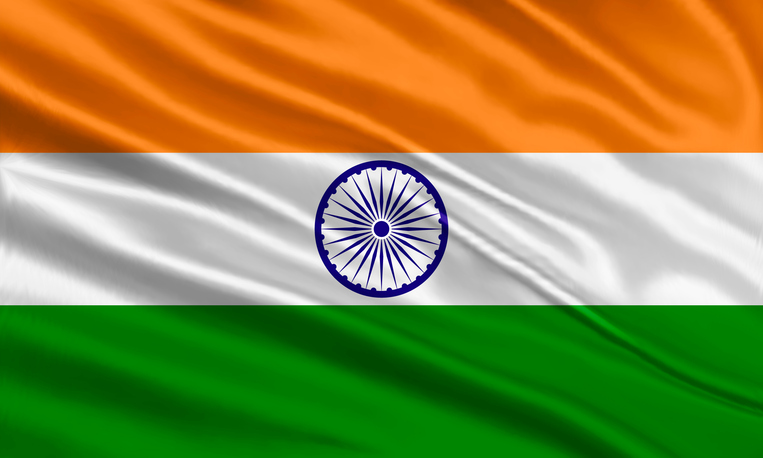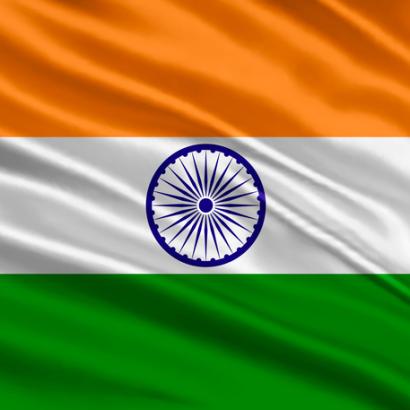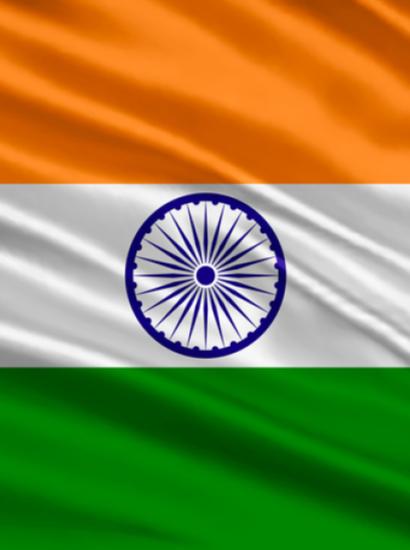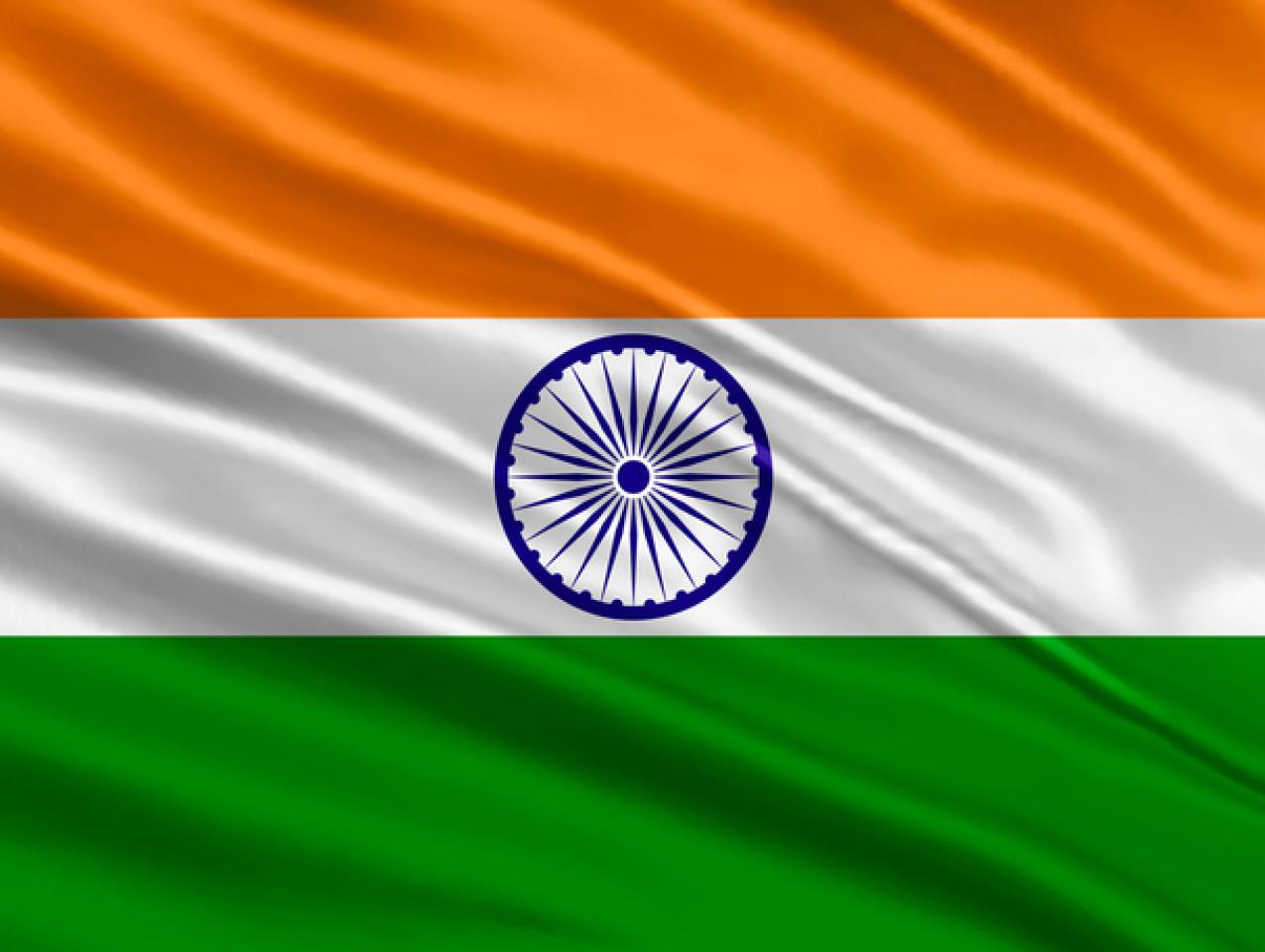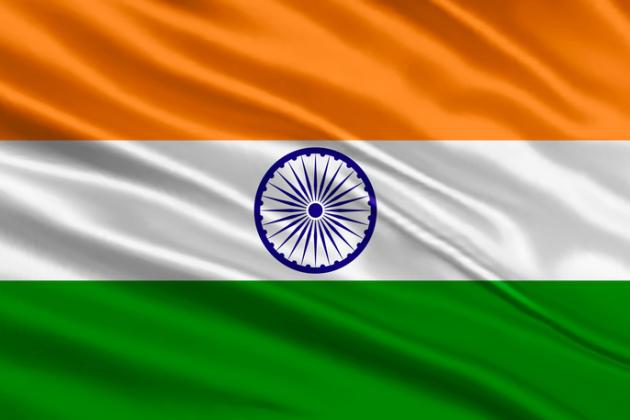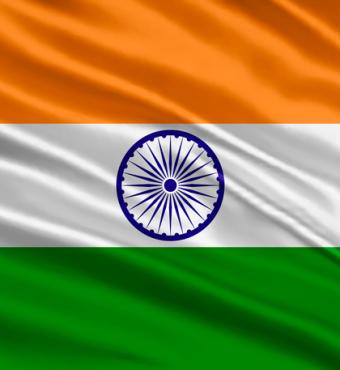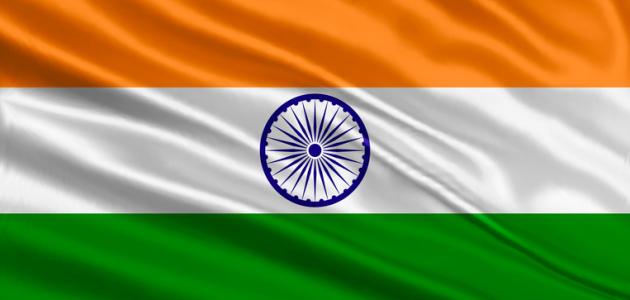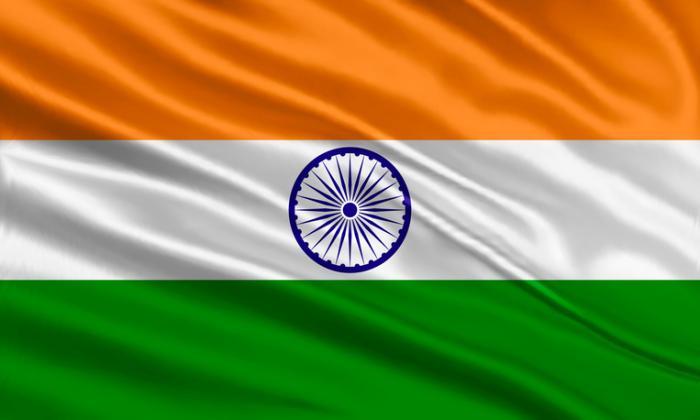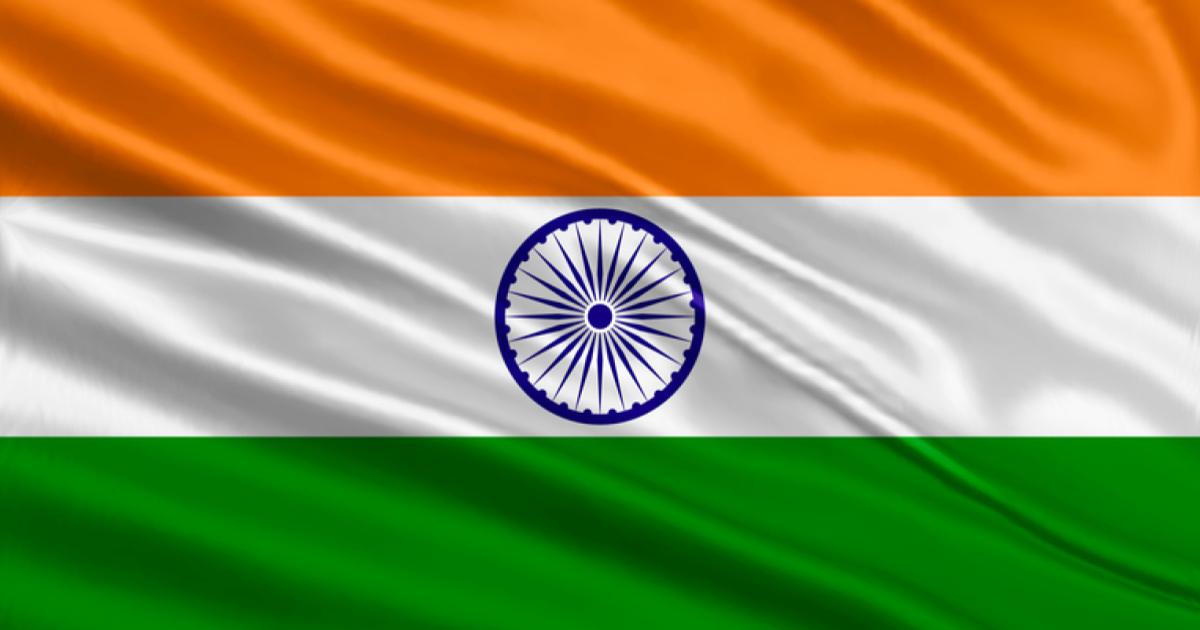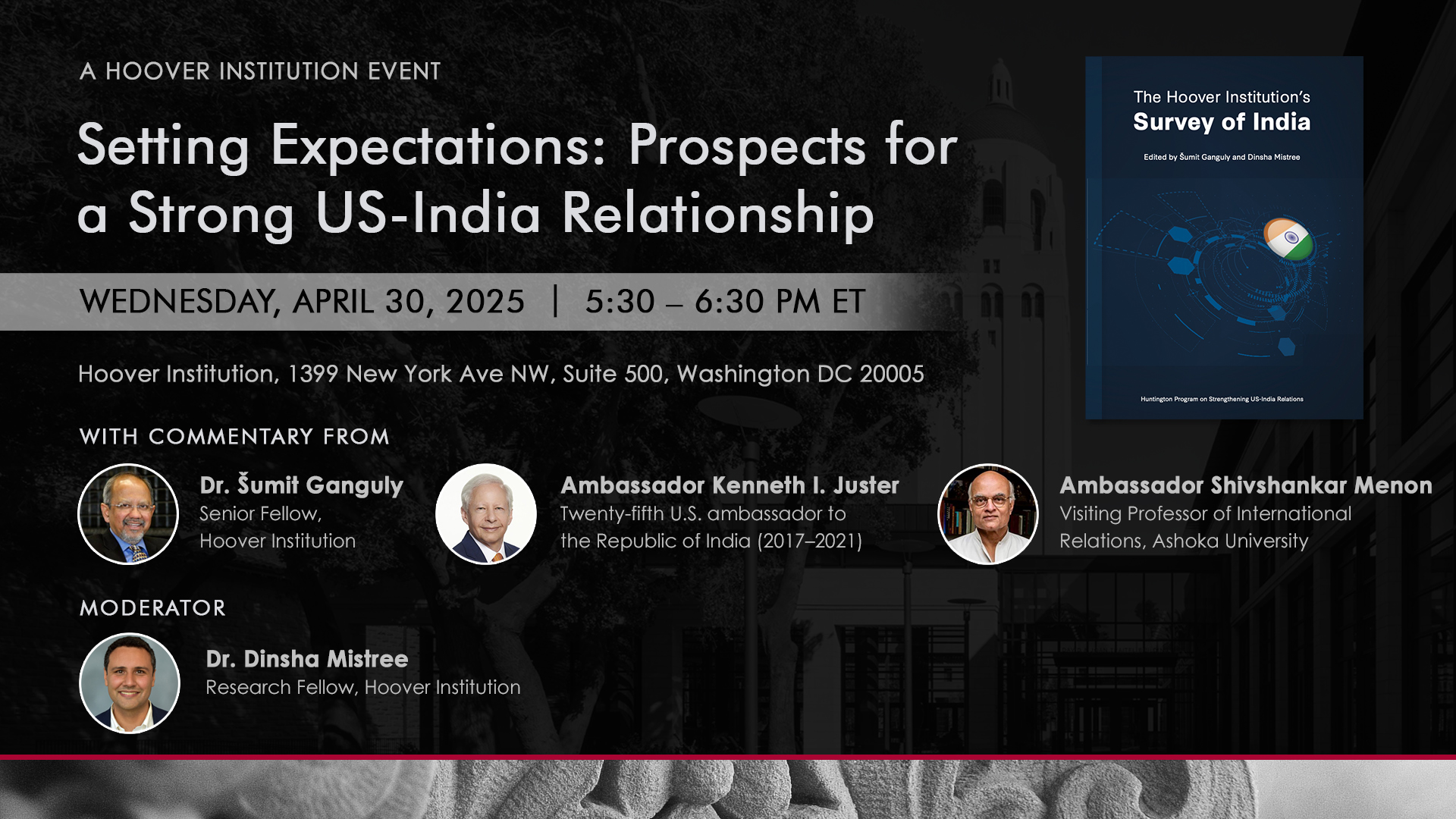Hoover Senior Fellow Šumit Ganguly and Hoover Research Fellow Dinsha Mistree hosted a panel discussion and reception for the launch of "The Hoover Institution's Survey of India" at the Hoover Institution's Washington, DC office on Wednesday, April 30 from 5:30-6:30 pm ET.
The panel discussion featured a conversation with Senior Fellow Šumit Ganguly, twenty-fifth US Ambassador to the Republic of India Ambassador Kenneth I. Juster, Ashoka University Visiting Professor Ambassador Shivshankar Menon and Hoover Research Fellow Dinsha Mistree.
WATCH THE EVENT
>> Dr. Dinsha Mistree: Hello, everybody. Thank you for coming. You can tell that our panel is running a little bit on India time for lack of a bad joke. Starting this on this panel on US India relationship by badmouthing India might not be the best way to go about it, but today we are coming together to have discussion with our eminent guests.
We will save some time for Q and A as well. I can't say enough about this group that we've brought together. Ambassador Juster was the US ambassador during Trump 1 from 2017 to 2021, he's had a long and distinguished career in government and the private sector. Before that, Ambassador Menon, Shivshankar Menon was the Foreign Secretary of India, also had a long and distinguished career, of course in government.
And now, he's a professor at Ashoka University, one of India's leading liberal arts universities. And of course Sumit Ganguly, the director of our program on strengthening US India relations at the Hoover Institution. So, we've got a really stellar panel today. I'm going to start with just a few basic questions to get them warmed up.
My real goal is to try and stand back and watch them have their own fireworks. But I will be moderating. My name is Dinsha Mistree, I'm a research fellow with the Hoover Program on strengthening US India Relations. This is a program that's about five or six years old now.
We touch on anything and everything that has to do with India, US Relations. Today, we did some rounds on Capitol Hill. Among other things, we talked about North Carolina apples and what this upcoming trade deal, potential trade deal, might mean for that all the way to bigger picture things like security, defense, terrorism, China and the like.
So this is going to be hopefully a freewheeling discussion, and with that, let me get our panelists started. So, Ambassador Juster, what do you think Indians get wrong about America. What are some of these conceptions?
>> Ambassador Kenneth Juster: First of all, Dinsha, thank you very much, it's a pleasure to be here with such a distinguished panel.
You know, the US India relationship has grown closer and closer over the years and in part because of the over 5 million Indian Americans in the United States who I think have a pretty good sense of America and get a lot of things right. Including that this is a country where you can come here and within a few years, no matter what your name is, where you came from, what your nationality is, you have enormous economic opportunity.
So, there's a lot that they get right. I think if you push me on what I saw, some of the senior people might not always get right. I would first say that even when Russia invaded Ukraine, there were continual references that the United States is not a reliable partner and that India needs to be cautious.
And I would have said up until maybe the last few months that we are a reliable partner and that that is very evident by how we reacted when China created problems in 2020 at the line of actual control when we supported India in its response to the Palwama incident.
I think we'll be supportive in action as long as it's proportionate to the situation in the current terrorist situation. Now, people are saying, is the United States as reliable today as it's been the last several decades? I think in the case of the US, Indian relationship, it still will be very reliable.
It's a very close relationship and it's an important country in the Indo Pacific region. I think the other thing I would point to is this notion that the United States and China may cut a G2 arrangement that will divide the world and have their own spheres of influence.
I think that there are structural challenges in the US China relationship that even if the current administration were to try to cut a trade deal with China, it's not going to have a broader G2 relationship relating to the world at large. Now, the current administration is predictably unpredictable, so I can't say anything with 100% certainty, but I think think the notion that that would happen is also a mistake.
>> Dr. Dinsha Mistree: This sounds like some stuff that we really should be working on and putting attention into how we can demonstrate our reliability in a more meaningful sense.
>> Ambassador Kenneth Juster: Yeah, but I mean, I think we do it. I mean, Prime Minister Modi came here in February. And if you look at the joint statement that came out of that visit, it was rather extraordinary.
Less than a month into an administration, the first meeting that Secretary Rubio had was with the quadrilateral quad ministers who were in town. If you watch the inauguration, Minister Jay Shanker probably had the best seat in the House, right opposite the president. So, I really do think that this is a very special relationship.
There are things and we can get back to them where there are challenges and there may be speed bumps along the way, but I think things are in pretty good shape. And I like to feel in the first Trump administration, the US India relationship perhaps along with the US Israel relationship are the two strongest parts of the administration's foreign policy.
>> Dr. Dinsha Mistree: So, Ambassador Menon, turning the question on its head, what do Americans sometimes get wrong about India? And let's set aside the 5 million Americans of Indian origin, people who are here, think about the rest of the country.
>> Ambassador Shivshankar Menon: Well, thank you for having me here and thank you for this opportunity.
Two things I would say. I think Americans underestimate how popular the US Is in India, because I think for many years, I think the politics has sort of overshadowed depth. You know, they sell real estate in Gurgaon outside Delhi, by calling it Palm Beach in Nassau County, that tells you something about what people aspire to, right?
And so, I think, and the second thing is really common to both of us, the political classes and the chattering classes are stuck in a time warp because the relationship has developed so fast. I mean, in historical terms, it's really unprecedented what the transformation in the relationship over the last three, three and a half decades.
If you look at that, I don't think people have quite the people who occupy television screens, write op eds and so on, and politicians have quite adjusted to the reality of what that relationship is. It's better than it's ever been before. And it'syou can't think of an area where, you know, it isn't an important relationship.
It's where it doesn't touch. It touches every aspect of what, not just the state, but what people do in their lives in a remarkable way. So, and I don't think either in the US or in India now, part of the problem is that I think when you look at it purely geopolitically, the US still tends to look at India as a geopolitical counterweight to China.
It's useful because of China, because of other things. Whereas India looks at the US as an essential partner for India's own transformation and development. So, the economics of it and every little economic issue, every immigration issue, becomes a big issue in India. And I mean, I'm not, you know, you can't expect Americans to see the relationship exactly the same way Indians do.
But there's enough congruence that I think that I'm confident, like Ken is that the future is good. It's not, you know, I don't think we need to worry too much about where it's going.
>> Dr. Dinsha Mistree: Well, I'm sorry, on one dimension that's music to my ears as somebody who really wants to see a strong US India relationship.
On another is somebody whose day job is to try and find things that other people aren't working on, try and advance this relationship. I think you're right. People are working on it across the board and it's very heartening to see. Sumit and I have recently put together this survey of India.
It's a document to try and inform people about what's happening in India. Sumit, maybe you want to say a little bit about how it's hopefully putting some of these concerns, misgivings, mistakes aside about it.
>> Dr. Sumit Ganguly: Absolutely. We initiated this project last year and you have copies circulating here.
There are physical copies available for you to collect and there's a digital version that can be easily accessed and shared. The idea behind this was that there is no one stop shop available until this publication of. If you don't spend the bulk of your waking hours thinking about India, and you want to know what's going on in critical sectors in India, whether it's the economy, whether it's foreign policy, whether it's defense policy, whether it's the state of health care in India.
This is a one-stop shop that in a matter of hours you can bring yourself up to speed on how the historical background to these areas have shaped Indian policy and continue to shape Indian policy in these areas. And each of these chapters are written by specialists who have devoted a considerable amount of their professional lives thinking about these matters.
So these are not sort of fly by night accounts of India's defence policy or the state of India's demography or the state of health care in India. And we are planning on doing this on an annual basis. There will be another iteration later this year. And furthermore, one of the things that we're going to depart from this particular version is we are encouraging all the contributors to put in policy recommendations for both capitals, both for New Delhi and for Washington DC about how might policy be tweaked or altered so that there's greater convergence between India and the United States.
Because we now see this, as both these gentlemen have underscored, as an enduring relationship. Unlike during the Cold War, when the relationship was based upon fairly thin gruel. Now it is a multifaceted relationship and a particular administration or a particular government in New Delhi can impede that relationship or can expedite and expand that relationship.
But the relationship has a momentum of its own. It, which is irrespective now of particular Governments in Washington, DC or in New Delhi. This was not the case until the last couple of decades. But critical choices on the part of New Delhi and on the part of Washington DC have imparted a momentum to this relationship where, yes, as with all bilateral relationships.
You're going to have a certain set of disagreements and vicissitudes, that's inevitable. But we no longer face the prospect of this relationship becoming irrelevant. That is simply beyond my cognitive abilities to think about this relationship just unraveling before our eyes, because the links have become so integrally intertwined.
Whether we are talking about the Indian diaspora in this country and as the inshores want to remind me, the million Americans who are working in India, the economic relationship, the diplomatic ties and the relationship, all of these have made the two countries sort of fundamentally intertwined. And consequently, a volume like this is designed to inform people of the sheer significance of India to the United States.
>> Dr. Dinsha Mistree: So from all three panelists, you're hearing something. Things are going good. This is the overall, I think takeaway of the US India relationship right now. But it's useful, I think also to think about what might be some of the hurdles, some of the challenges that we might not be seeing.
You know, we have momentum on our side, but what are some of the challenges as well as what are some of the opportunities? So maybe Ambassador Juster, if you'd like to.
>> Ambassador Kenneth Juster: Well, let me talk about some of the opportunities and come up to some of the challenges, as Schumach was saying.
And you see it in the joint statement that came out of the Modi Trump meeting in February and also what Shankar said. The relationship covers every issue in human endeavor. Emphasis on defense cooperation, which has steadily grown. There still are areas where the US Might like to do more than India is currently prepared to do.
But we coordinate on a variety of military exercises. There is increasing purchases of US defense equipment. There's going to be co production and even co development of defense articles in India. There are people stationed in the other's headquarters, and it's a very deep relationship. Technology is a huge driver and it has been for the last 20 plus years.
But ways that we can cooperate in artificial intelligence, quantum computing, semiconductors and the like. Now, that, of course, also relates to Silicon Valley and how we can work on innovation together and startups in both countries. The energy relationship has grown by leaps and bounds. India imports a significant amount of its energy, and the US during my tenure as ambassador, started exporting oil and liquefied natural gas.
There's now the prospect of working together in the civil nuclear area, which was the initial aspiration of the 2008 nuclear deal, but was impeded by the civil liability law of 2010. And India has indicated that it's going to make amendments to that to enable more cooperation, including in advanced small nuclear reactors.
So those are all areas. Health care is another area. The challenge has been in the past, even though it continues to grow, trade and investment. It's underperformed relative to the size of our economies. The United States, the largest economy, India is the fifth largest, but soon to be the third largest.
And while the trade amounts have steadily grown, I think they're not what they should be. In fact, the two leaders have pledged to try to reach $500 billion of bilateral trade over the next few years, and we can come back to it. There's going on now trade negotiation in which the United States is seeking to get India to lower its tariffs.
Something that I'm happy to elaborate on, I think is in India's own interest to do and would be beneficial, especially because they want to lock in the benefits of the US Market, which is their largest export market. I think another potential obstacle down the road potentially is that India has a different vision of how the international order should be structured than the United States.
India believes in a multipolar world, and it wants to have good relations with all of the poles in that multipolar world. And the United States traditionally has led a Western liberal order. You know, we're now undergoing changes, and we might be moving more toward a multipolar world or potentially on some levels, bipolar and other levels multipolar.
But those visions are not 100% in sync. We saw this crystallized in the Russia invasion of Ukraine when the United States was hoping that India would support sanctions against Russia and India, which has a long historical relationship first with the Soviet Union, and then Russia was not willing to take sides and tried to be more neutral in its approach and eventually got the rest of the world to respect that and to still seek to have a very strong economic and diplomatic relationship with the government of India.
So those issues are out there, but in the context of a increasingly strong partnership. And it's a partnership. It's not an alliance, a partnership that covers every issue and that is working together. And I think that the technology world will force the two to be somewhat closer, because at the end of the day, if China has a platform for some of these technologies and the west has a platform, it's hard to be on both.
And so if you wanna work closely with the United States, and I think India does see the US Shankar is saying, as enabling its own economic development through technological cooperation, that will inevitably mean that even though there may be multi poles, the distance between the US and India polls is much narrower than it might be between some other polls.
But those are, I think, some of the opportunities and potential obstacles. And again, I happy to come back on the trade relationship, but I hope we can reach an agreement, which would be something we haven't been able to do previously, and it would really open up much greater economic interaction.
>> Dr. Dinsha Mistree: That's an important one. And thank you because you're giving me lots of fodder for what we have to investigate with our program. Ambassador Menon, how do you see the relationship where the opportunities, where the challenges from the Indian perspective?
>> Ambassador Shivshankar Menon: Basically, I agree with what Ken said that there's huge opportunities in defense, strategic issues and in technology especially.
And if you look at the developmental part of it, I think the economics of it. But I think the problem is a failure of imagination on the trade and commerce side. And here, frankly, I'm no economist, as my bank manager will tell you. But I think both sides own thinking on trade and especially on issues like globalization, protection and so on, has shifted over time, maybe in the same direction, more protectionist, more industrial policy.
But that hasn't meant that they still see the relationship. I think they're actually missing a huge opportunity that even from India's point of view, actually this is a moment where you could actually push forward and do the things that you normally find hard to do. That as you did in 1991, you had a crisis on your hands, you changed course economically and you changed the way you dealt with the rest of the world.
And so you need to, I think, use today's situation where there is uncertainty in the world economy, nobody's quite sure where we're going. We need to use this and this negotiation that we're doing with the US on the bilateral trade agreement. We tried during the last six months of the first Trump administration.
I think this now is, as Lady Macbeth said, if were done to a best that were done quickly, I think this is the time to actually do it. So for me, this is both an opportunity and a challenge. But it's a challenge to our imagination because people are set in their older ways of thinking.
And so if you ask me, are you confident they'll take this chance? I'm not really sure. Of course there's other opportunities. There's a whole host of things. As Ken mentioned on the multipolar world, you know, yes, the government of India tends to say that they seek a multipolar world.
Many sorta middle paths say they see a multipolar world. It flatters them to present themselves as a present or future pole and it works well with their populations. But my attitude, I'm a minority here. I really think you should be careful about what you wish for. You never know how that it's going.
It's not necessarily gonna work in your favor. You need to be a little careful. If you look at India's trajectory, and I speak as an Indian here, over time, we did reasonably okay during the Cold War, right? We did actually much better. Our high growth years and the years when we pulled 140 million people out of poverty, where really the unipolar moment was when the US was the single superpower.
And even today, the world is not multipolar. It might be multipolar economically. China is an economic superpower. But militarily there's only one power which can project military power across the world where it wants, when it wants, and that's the US it's unipolar still militarily maybe challenged in regions, but not, you know, and politically, it's thoroughly confused.
So to talk of it as a multipolar world or to. I'm not quite sure that that's really something we should be wishing for. So I wouldn't think that that in the long run is going to stand in the way of the development of the relationship.
>> Ambassador Kenneth Juster: Well, I think partly-
>> Ambassador Shivshankar Menon: That's, yeah.
>> Ambassador Kenneth Juster: I just wanna pick up on Shankar's point about the opportunity in the trade area. While people may feel, gee, this is a tough thing for India to deal with the Trump administration's demands, I actually think, as Shankar was saying, it's a way for India to make some reforms that are in its own self interest and perhaps blame, blame it on pressure from the United States because if you want to become a manufacturing hub.
You need to have lower tariffs so goods can move in and out and companies can set up operations, where they have less friction on trading issues. As I said earlier, the United States is India's largest market, so you want to lock in those benefits. We actually can see India getting ahead of other countries that produce similar items and especially against China because their tariff rates with the United States will go down while they'll stay high with China.
And if India reaches a trade agreement, they can do it in a way that relates to the United States, but they don't have to lower the tariffs for China if they want to keep Chinese products out. And I still believe that trade overall is beneficial to one's economy and it is unfortunate that I think we're seeing increased protectionism and industrial policy.
And India has the Prime Minister Modi has the political capital to sell a deal with the United States, I don't think he is threatened politically. And I think for India, actually they should not only do a deal with the United States, maybe do one with the UK and the European Union and become a greater economic powerhouse overall.
And finally, they need a regional trade strategy, I mean, that's really where China dominates, is that their economic influence in Asia is enormous. And India withdrew from the Regional Comprehensive Economic Partnership Agreement, and I understand the reasons for doing so. The United States withdrew from the Trans Pacific Partnership, but we've got to build something else up, otherwise we're both going to be shut out in the region, so trade has been an obstacle.
It is a sticky issue, there are always domestic interests that speak up, Indian companies, by the way, are world class and can compete, in my opinion. But it should really be an opportunity to do things that make sense but have not always been easy. And you get in the first group of countries that have agreements with the United States and you'll send a strong signal to the US Business Community that India is open for trade and investment.
If we fail to get a deal, it's going to send a negative signal and have a detrimental impact.
>> Dr. Dinsha Mistree: Ambassador Juster also has a very nice article from a few years ago talking about a Trans Pacific Partnership with India included in it. This is the kind of thinking that I think is really important because if it's just US, India, that's great, well and good, strong, but there are many more countries that-
>> Ambassador Kenneth Juster: We should even build on the quad in which Japan and Australia have a trade relationship. Japan and India does, Australia and India does, The United States has with everyone, but the United States and India don't. And if those four countries can build out trade relations and gradually get other countries in Southeast Asia to join in.
I think that would be a very powerful signal and very positive for economic growth.
>> Dr. Dinsha Mistree: So by and large, what we're hearing is from our two ambassadors that economic convergence is a real opportunity. A lot of people have also talked about strategic convergence, especially vis a vis facing China as a baseline for promoting India US relations.
Ambassador Juster has written a paper about TPP plus India, Sumit's written a book on China India relations. Sumit, what do you think about the potential for strategic convergence regarding China?, and just generally, what do you see as the relationship, the promises and the pitfalls?
>> Dr. Sumit Ganguly: To begin with, to disabuse anyone of any notion that there is an imminent breakthrough in Sino Indian relations.
Let me say it's not about to happen, so let's not even entertain that prospect. There has been a little pause in the relationship because China is extremely preoccupied with the 145% tariff that it is contending with, it does not want trouble on its southern border with India. But let me be abundantly clear on this, this is an enduring rivalry, this is not going away anytime soon.
It's an enduring rivalry because the PRC, regardless of regime, sees India as the principal impediment in Asia to the realization of its dream of dominating all of Asia. The other impediment, of course, remains the United States, but from a regional standpoint, India is the principal impediment. The tragedy is that India has a massive trade deficit with China and it's worsening and Indian policymakers have not come up with a panacea for addressing this.
The PRC has flooded India, just as it did to the United States, with a range of cheap consumer goods to which the Indian middle class has become largely addicted, and there is no quick substitute for this. There are complex reasons why India cannot provide suitable substitutes for Chinese goods and having to do with deeply flawed economic choices made decades ago, and there is path dependence as a consequence.
But the central point I will make is that Galwan, the incursions in Ladakh in 2020 is simply a precursor of further incursions that are going to come. If I put on my political scientist and international relations scholars hat these are what are called limited probes which are designed to test your metal along an unsettled border.
And these limited probes essentially give the PRC information about India's capabilities and resolve along the border, they tried it and they discovered India's weaknesses in 2020. You know, to quote McGeorge Bundy, who said at the height of the Vietnam War when an American military base was attacked in Vietnam Pleiku.
At a press conference, he said Pleikus are like streetcars, to paraphrase McGeorge Bundy, Galwan is a streetcar, there's another one coming. And if anyone believes otherwise, they are living in a world of their own making. And my view is that India has to do two things, one, bolster its own domestic capabilities and second, the only viable strategic partner it has is the United States.
Unless New Delhi comes to this realization, it is going to be faced with multiple Galwans, which are only going to SAP its strength.
>> Dr. Dinsha Mistree: Ambassador Menon, I think you mentioned something very similar, you mentioned that you are in the minority in this camp here, thinking about the the US as a strategic partner.
Just like to hear you reflect on what Sumit has said and whether there is a convergence between the US and India. It could be provoked, encouraged by what we see with China, or whether we're looking at the wrong sort of elements here, whether we should be looking at trade and other things.
>> Ambassador Shivshankar Menon: From my point of view, opinion in India has already shifted considerably. I think most people in India do regard the US as a strategic partner in shamelessly plugging something. I've just published a small book which says India in a world adrift, and it actually predicts that that's going to get much closer.
But the Congress is based on a common view of what Asia should be like. It shouldn't be dominated by one power, that it needs to be open, plural. And you know, but I think we also. And so if you look at the extent of India-US cooperation in defense and security and intelligence, it's really unprecedented.
And so I think that understanding exists already. The problem, the fundamental issue though is that India is both the continental and maritime power. We have both continental security. I mean, we have the world's largest boundary dispute, right? 138,000 square miles, it's more than most members of the UN.
And we're a maritime power. We worry about what's happening in the Indian Ocean, across the whole Indo Pacific, actually. I mean, 38% of our trade goes through the South China Sea. And so what happens across the Indo Pacific matters. The US Is not present on continental Asia anymore.
We have to work with whoever we find in continental Asia. But if you look at what we're doing on the maritime space, it's incredible actually. There are degrees of interoperability today which would have been unthinkable ten years ago. And Ken had a lot to do with this actually.
So I think we need to understand that both sides, this is why the word partners is really the right word because it's not that we have identical interests or that all our interests are going to be dealt with by the other identically as the way we would like them to be.
I mean, Ukraine is a good example of that. But that's not going to affect the course of the relationship, because there's enough fundamental congruence. If you have the same view of where Asia is going, if you have a similar kind of view of what China is trying to do.
And what the effects of China's rise have been in the region. We will work together and you'll find more and more to do together, and that you have done successfully. So sometimes I think we out think ourselves, we overanalyze. This is like taking the temperature of a patient every hour, and you'll convince yourself he's dying because you frighten yourself.
The British Empire had this problem. They didn't have an intelligence system until 1857. So they did great things. They conquered India. After that, after 1857, they set up an intelligence system and frightened the wits out of themselves and saw enemies everywhere. And that was the end of the expansion.
And there is partly this problem with India. US relations are doing well, and are doing well despite the analysis and all the chatterati and what the talking heads make of it. So I really think there's enough strategic congruence there to actually see us through.
>> Dr. Dinsha Mistree: That's terrific. So just turning now from east to west, the Palgam tragedy that's recently happened, news in the US on India right now is dominated, I would say, by two topics.
One is the trade deal that might be coming through. And then, of course, this Pilgrim tragedy. I'm interested, Ambassador Juster, what can the US do to support India in this time where they face this terrorist attack?
>> Ambassador Kenneth Juster: Well, I happened to be in India during the last major terrorist attack in Pulwama, and I would think we would do things similar to what we did then.
We provided intelligence support. We accepted the fact that India would be taking retaliatory action of some sort, we wanted it to be proportionate and not disproportionate. We want it to be based on evidence that they have as to where the terrorists may have come from. And we then worked closely with both India and Pakistan to try to ensure that the conflict that came out of Pulwama did not escalate into something more drastic.
And so I think, again, the United States has already said that we are with India in terms of our concerns about terrorism and the need to respond forcefully to something that occurs. And I believe we will be sharing information that might be helpful if and when India takes response.
But India is going to do what it feels appropriate at the time of its choosing and in the manner that it feels best. And, you know, I think the Pakistanis have indicated they may then do something as well. And if necessary, we're not gonna mediate between the two, that's not our role.
But we will try to help prevent an unnecessary escalation overall. But, you know, we feel very strongly, and this was again part of the Modi Trump statement, that terrorism is a scourge on humanity and we've got to work together to put an end to it as best as possible.
>> Dr. Dinsha Mistree: So in Trump I, Ambassador Juster with Secretary Pompeo played a leading role in encouraging restraint. And should it come to that-
>> Ambassador Kenneth Juster: Know, what it is, is that if each country thinks the other is moving nuclear weapons in a way that can be escalatory, the one country that has visibility into that perhaps more than any other is the United States.
And to the degree we're able to convince both sides that that's not what's really going on, we don't let rumors and interpretations get out of hand overall. And that's what we did in 2019.
>> Dr. Dinsha Mistree: So hopefully, ideally, those lines of communication are already established between India and Pakistan, but the US can also potentially play a role there.
I think this is a good point to open up to questions. I see several hands coming up, please, Gaurav.
>> Gaurav Bansal: Thank you.
>> Dr. Dinsha Mistree: We've got mics.
>> Gaurav Bansal: Hi, my name is Gaurav Bansal. I had the pleasure of working for Mr. Juster and have served in India three times with the State Department.
I'm currently with the House of Foreign Affairs Committee. So I'm gonna actually use this chance to ask Mr. Menon a question. I'd say there's a lot of chatter about what to do if there is a Chinese invasion of Taiwan. What do you think India's stance would be? Do you think India would try to help an international coalition if we were to put something like that together?
And what would India be capable of doing? Thank you.
>> Ambassador Shivshankar Menon: Well, I think there's a whole lot of contingencies, you know, short of full fledged invasion, blockades, islands. I mean, there's. And I'm sure that our people are talking about it. We've been talking about it for a long time, between India and the US, about what kinds of contingencies we can expect and what each side would do.
As our capabilities grow, obviously, and they've grown over the years, there are more things that we could do that we could quite. Coordinate that we couldn't, but I haven't seen any of it in the public domain so far. But it's the kind of conversation. That's why I say that our relationship has grown to a point where it's the kind of conversation which you would expect partners to have, and we do.
And, and it's not the only one of its kind.
>> Dr. Dinsha Mistree: That's great to hear. Yes, please.
>> Kami Burton: Yes, sir. My name is Kami Burton with the Pakistani Spectator. And my question is about the current issue between India and Pakistan. And Trump's statement he said they are both best friends.
Is that because he knew that there was a accident in Pakistani Balochistan where whole train was hijacked and India might have involvement with it. And my second question is how can India become a powerhouse when you have Islamic cancer? Next country According to Statistic 15 Army Chief of retired army chief are living abroad Pakistani army chief and only one is in Pakistan.
I mean this country is ruled by thieves and crooks. And I think this was failure of Winston Churchill who divided India into two parts. But which party has better vision, BJP or Congress to somehow resolve these issues peacefully. And I know being Indian you don't want 200 million troublemaker to be in India because you already have like 150 million.
But I mean, is there any solution, is there any vision about bringing these two country at least not like America and Canada, but at least they can survive peacefully. Thank you very much.
>> Dr. Dinsha Mistree: Sumit, do you want to take this one? This was a question I think about Pakistan and what I think the US should be thinking about as well as what India should be thinking about vis a vis Pakistan, which I would say, I would describe it personally as a state on life support right now, it can get much worse, but it's not exactly flourishing.
Sumit, would you like to say some words about Pakistan?
>> Dr. Sumit Ganguly: Sure. The central problem is that regardless of what India does or does not do, Pakistan needs to reconcile itself to the status quo in Kashmir. An attempt to revise borders in blood, whether through the incursions that took place in 1999 in Kargil or subsequent support for any number of terrorist organizations from its own soil in is a losing proposition.
The discrepancies between India and Pakistan have become so great. And Pakistan's disproportionate contribution to its defense budget is a proposition that cannot be sustained over the long term. And unless the military establishment in Pakistan recognizes that this, to use their term, that a war of a thousand cuts is actually a losing proposition until it comes to that realization, I'm afraid we will get no resolution of the Indo Pakistani conflict.
Abandoning this fruitless quest to wrest all of Kashmir back to Pakistan is a lost cause. And until that realization dawns on the military establishment which casts an overweening shadow on Pakistan's domestic politics and foreign policy choices, I'm afraid that this is going to remain a source of contention and periodic violence to the detriment of both countries.
>> Dr. Dinsha Mistree: Ambassador Menon, on this question, just following up the question of whether BJP or Congress has a better view on this. It seems like there's a lot of cross party, cross party convergence on matters of foreign policy and particularly on Pakistan, especially in light of the recent terrorist attacks.
Would you agree with that assessment or would you say that one party has a different vision from another?
>> Ambassador Shivshankar Menon: I don't think it's very different fundamentally. I think what has changed because if you look at it between Vajpayee Mohan Singh you had a very similar approach. But I think what Mumbai, Obama, all these have done is they've convinced people across the political spectrum, both BJP that its that changing Pakistan's behavior is near impossible.
Now that's a very sad conclusion to come to because it then cuts off a whole set of policy options which have much more hope. Right. And that's one reason why you're in this situation I think today where people fear the worst though I don't think it's actually going to happen.
I think there are sensible people on both sides and nobody wants to, the risks aren't worth it on both sides but there will probably be some form of kinetic action. I mean it can't not be, but how far it will go and so on, I don't know. But it's sad because so today I don't think you can actually draw a distinction between Congress, bjp.
This that you heard in the all-party meeting, the Congress actually supported what the government has been doing.
>> Dr. Dinsha Mistree: Ambassador Menon has some nice quotes as well in the New York Times about this recently. Akshar, please.
>> Akshar: Thank you, Dean Shah and thank you Professor Ganguly, Ambassador Juster and Ambassador Menon.
I just wanted to touch about restraint. Ambassador Menon, because you wrote a lot about it after you know, 26 11. That was of course one of the worst attacks and there the juxtaposition that we're seeing now and then in terms of one of the worst attacks. I want to touch upon that because right now it almost seems like, you know, cutting off Indus Water Treaty which never happened and you know, talks about that 65, 70.
Yes.
>> Ambassador Shivshankar Menon: Bans.
>> Akshar: The bands, sorry, abeyance rather. And that would just be seem like a proportion that the Pakistani military has spoken about equivalent to war. I just want to know how the Pakistani thinks.
>> Ambassador Shivshankar Menon: Well, they said if you shut off the water, it's an act of war.
Nobody shut off the water.
>> Akshar: Exactly. So I'm just curious.
>> Ambassador Shivshankar Menon: It's not the easiest thing to do.
>> Akshar: Right. I'm just curious right now given that the relations have been at a nader since 2019, there's been no High Commissioner. The worst we've seen since 71 to 76.
Where does the Pakistani military strategy go from here? What is their thought process right now?
>> Ambassador Shivshankar Menon: I can't answer for Pakistan.
>> Dr. Dinsha Mistree: Although it would be fun to watch. Yes. Yeah, please.
>> Speaker 8: I also follow up with his. Thanks. Thank you all for hosting a wonderful panel and going from the west on to the east, I wanted to look into the South China Sea.
Ambassador Juster and Ambassador Menon had spoken on it a bit. Do we see any preeminent like partnerships in regard to India and any Southeast Asian countries vis a vis their look east policy at all or act east, rather? And can you all speak about that a little bit more, I guess, in the rising tensions in the region as a whole?
Thank you.
>> Dr. Dinsha Mistree: Would you like to go first, Ambassador?
>> Ambassador Kenneth Juster: I'm not an expert on this, but. But India wants to continue to develop and cultivate its economic relations with the countries of Southeast Asia. And India and the United States have both said that ASEAN centrality is important to the broader concept of the Indo Pacific.
I'm not sure that India is doing security, extensive efforts, although they do do joint exercises with countries and certainly with the Quad countries. While it's not under the auspices of the Quad, they do a Malabar naval exercise, there's domain awareness exercises. And again, there may be bilateral exercise that India does with some of the countries in Southeast Asia.
Shankar may know more about that. But certainly this is a critical region, and it's one that the countries there don't want to have to choose one side or the other, whether it's the United States or China. They like to have good relations with everyone, but they're going to be important economic players.
And, you know, I think that was part of the missed opportunity for both the United States and India, not being in sort of a regional architecture. But India does have a free trade agreement with the Asean countries more broadly. Sometimes they're concerned that China uses that as a backdoor to penetrate the Indian market.
But it's certainly an area of focus and opportunity.
>> Dr. Dinsha Mistree: Is this an area where the US and India can work together towards approaching these Southeast Asian countries in a meaningful respect, would you say. Or is this-
>> Ambassador Shivshankar Menon: On trade or on-
>> Dr. Dinsha Mistree: Open, I mean, I think trade, perhaps, you can also think about perhaps defense and security.
>> Ambassador Shivshankar Menon: On defense and security, there's been a fair amount of work. It started, I mean, after all, the Quad started with the tsunami, right? In 2004, when these were the four navies that actually responded, and since then, also, if you look at it, counter piracy, for instance, India's done.
There's a fusion center in Singapore we've worked with Malaysia, Singapore, all the Malacca Straits, Indonesia, the others, Thailand. There's a lot of work done between the navies across the entire Indo Pacific. It's in bits and pieces. Malabar, during Quad 1, we'd invited Singapore, Australia to Malabar, they're now Australia's back in Malabar in.
In Quad 2, okayain. So there's a whole network of sort of interrelations, it's not a formal architecture, unlike Europe or where Instead of that, there's this. I'd say it's a networked arrangement, and you'll notice that it has multiple sides. We've sold missiles, for instance, Ramos missiles, to the Philippines.
We have naval cooperation with Vietnam. I mean, you saw the Japanese are in the Philippines right now coordinating what their navies do together. What you've seen is over the last decade and a half is a real intensification of defense and security links across the entire maritime Asia, all those affected basically by the rise of China.
This is not an alternative to the US Hub and spokes and to US commitments to security in the region at all. But that's been strengthened too, whether it's US Japan, US Korea, etc. US India ties, you've seen what's happened in defense. But I would, I would look at it as, as a web rather than as some formal architecture.
And that seems to work better for most people in Asia, this pragmatic but effective way of dealing with it.
>> Ambassador Kenneth Juster: I would just add that there is a sensitivity by all countries that it not be seen as an anti China web or that an Asian NATO which the Chinese have complained about.
But as Shankar saying, there's been just an increase in coordination, whether it's on humanitarian assistance, whether it's on domain awareness, whether it's on anti piracy. What is interesting, and a lot of commentators don't pick this up, the quadrilateral security dialogue that began in 2007 is not referred to by the parties as security dialogue.
The word security is not in there, it's just referred to as the quad.
>> Ambassador Shivshankar Menon: Yeah.
>> Ambassador Kenneth Juster: In part because there's a desire not to make it look like it's a security arrangement. But I assume, and I have no doubt that some of these issues are discussed generally behind closed doors, but with a sensitivity to not making it seem like it's an anti China military coalition.
>> Dr. Dinsha Mistree: So I think I would like-
>> Ambassador Shivshankar Menon: There must be a lot going on because the Chinese used to say, quad is foam on the ocean, but now they say it's a nation NATO in the making. So they seem to take it seriously.
>> Dr. Dinsha Mistree: So this is a bittersweet panel for, it's bitter for two reasons.
I think it's sweet because we've talked a lot about the potential for US India and they've given. Our panel has given us a lot to be optimistic about. It's bitter one, because two esteemed gentlemen to my. To my left have worked so hard on the relationship and I would love it if they were still in government promoting and building and doing the things that have really defined this U S India relationship.
It's bitter for a second reason too, which is in the course of an hour, we can only touch on so many different topics. However, we've got a reception to follow right after this and I think that you can grill and Pepper our esteemed panel separately, outside of the din of the cameras and the rest of the crowd, I'd like to give, of all people, Sumit, the last word as the director of our Huntington program on strengthening US India relationship.
So Sumit, vote of thanks, as they say in India.
>> Dr. Sumit Ganguly: Thanks. Yes, I'll try and avoid that particular phrase. I've never cared for it because you don't get to vote. But I do want to thank my colleague Dinshwa Misri for presiding over this panel. To our two panelists, Ambassador Kenneth Juster and former Foreign Secretary and National Security Adviser,.
Ambassador Shivshankar Menon, and obviously, the extraordinary staff of Hoover, Washington D.C. and Hoover Central back in Palo Alto. They are too numerous to mention and I'm always mindful that I'm going to forget someone. So I'm just going to issue a blanket vote, you implanted in my head a sweeping set of thanks for the extraordinary amount of effort and organization that went into making this event happen.
And we look forward to doing similar events in the future. Not necessarily linked to the launch of the Hoover annual survey, but on topical issues concerning US India relations. And since Hoover has made this extraordinary investment in this project, which is unique, unlike most people, I will not say quite unique because something is unique or it's not.
And all too often in the United States, people say this is virtually unique. No, it can't be virtually unique, it s unique. And this is a unique program, and we hope to see many of you back at our events here in Washington. Thank you for coming and without any further ado, to this marvelous reception that the Hoover staff in Washington have put together.
Thank you.
>> Dr. Dinsha Mistree: Thank you.






